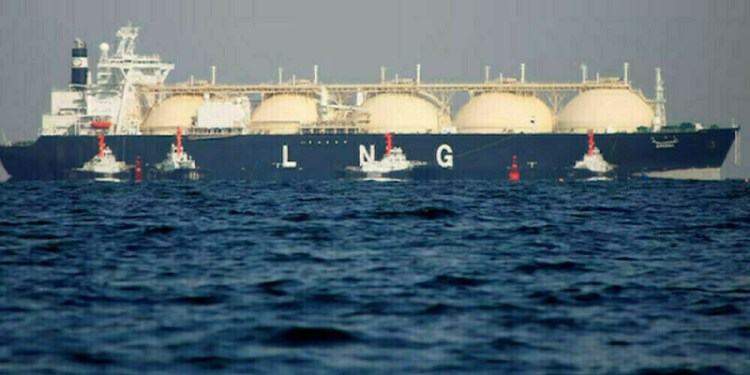* Fake AP tweet briefly roils markets
* U.S. equity markets bounce back; provide support
* China HSBC flash PMI eases, points to tepid Q2
* Violence in Libya, Iraq lends support
* Coming: EIA weekly oil stocks at 10:30 a.m. EDT Wednesday (Adds API data)
By Anna Louie Sussman
NEW YORK, April 23 (Reuters) – Brent crude oil edged lower on Tuesday in reaction to weak manufacturing data in China and Europe, but it closed above $100 a barrel for a second straight day as it drew some support from strong gains in U.S. equity markets.
The flash HSBC Purchasing Managers’ Index fell to 50.5 in April from 51.6 a month earlier as new export orders shrank in China.
The PMI’s 50-point level divides growth from contraction from the month before. The data followed lower-than-expected GDP growth for China in the first quarter, which helped spark a sharp sell-off last week.
There was also a surprise decline in business activity among German companies, although the overall euro zone services PMI rose slightly and met economists’ forecasts.
“People are worried about a slowdown in China and Europe, but I think with the stock market going higher today, Brent is going to rebound a bit,” said Mark Waggoner, president at Excel Futures in Portland, Oregon.
He cited $100 as a psychological level off which Brent had been bouncing in recent days.
June Brent crude settled down 8 cents at $100.31 a barrel after falling by more than $1.50 in earlier trading. U.S. crude for June delivery settled down 1 cent at $89.18 a barrel after falling more than $1 earlier.
Shortly after 1 p.m. EDT (1700 GMT), a bogus post on the Associated Press Twitter account that reported two explosions in the White House sent U.S. stock, oil, and Treasury markets down sharply before they bounced back in a matter of minutes or seconds. Gold also surged briefly, but was still lower on the day.
“It puts into perspective our increasing dependence on technology and communications,” said Bill Baruch, senior market strategist at iitrader.com in Chicago.
“It brings us back to reality in the sense that these communications are easily misconstrued, easily hacked, so not only can people put out false information, but they can capitalize on it.”
Even after their steep drop, U.S. stock markets were all up around 1 percent on Tuesday on robust earnings across sectors, giving support to the oil markets, which often trade in tandem with equities.
“Stronger equities pulled the crude market up from its lows. Crude has become another financial instrument, driven by risk-on, risk-off trading,” said Kyle Cooper, managing director of research at IAF Advisors in Houston, Texas.
Tim Evans, an energy specialist at Citi Futures Perspectives, said that gasoline, which was off nearly 2 percent, was relatively immune to the stock market’s rallies, calling it “the weakest element of the complex, with weak physical demand, rising refinery throughput and ongoing vulnerability from excess speculative length.”
Brent settled above $100 on Monday for the first time in five sessions as traders saw oil below that threshold as a bargain.
The benchmark has fallen nearly 9 percent so far this month, the biggest fall since last June, on concerns about global growth.
In response to China’s moderate growth, Saudi Arabia was expected to keep oil output steady throughout the second quarter after a 700,000 barrels per day (bpd) cut in the last two months of 2012.
VIOLENCE SUPPORTS
Violence in oil producing countries, which raised supply worries, helped prevent a sharper drop.
At least 40 people were killed on Tuesday, when Iraqi forces and Sunni Muslim protesters clashed after troops raided their anti-government demonstration camp near Kirkuk, military sources said.
Later in the day, at least seven people were killed and 17 more wounded when two roadside bombs targeted worshippers as they were leaving a Sunni Muslim mosque in southern Baghdad, police said.
A car bomb in Tripoli wounded two French guards at France’s embassy in Libya on Tuesday, bringing new violence to the capital, which has not seen attacks on diplomats such as the one that killed the U.S. ambassador in Benghazi last year.
Fighting in Africa’s top energy producer, Nigeria, and a force majeure on its Bonny Light crude exports also helped to put a floor under Brent prices.
Investors are watching weekly oil inventories data from the United States on Tuesday and Wednesday to gauge demand in the world’s largest oil consumer.
The American Petroleum Institute released data Tuesday afternoon showing U.S. commercial crude oil stockpiles dropped by 845,000 barrels, in contrast to a survey by Reuters of 10 analysts in which the consensus forecast was for a climb of 1.5 million barrels last week on increased imports.
The API data showed a fall in gasoline stocks of 2.7 million barrels, and a build of crude stocks at the U.S. hub at Cushing, Oklahoma, of 38,000 barrels.
The more closely watched report from the U.S. government Energy Information Administration will be released Wednesday morning at 10:30 a.m. EDT (1430 GMT). (Additional reporting by Robert Gibbons in New York, Simon Falush in London, and Florence Tan in Singapore; Editing by Marguerita Choy, Bob Burgdorfer and Peter Galloway)
Source: Reuters

























